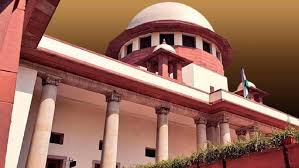Should the irretrievable breakdown of marriage necessarily result in the dissolution of marriage in exercise of powers under Article 142 of the Constitution of India, when such is not a ground for divorce under the Hindu Marriage Act 1955?” – is the question posed before us. (Para 1)
The appellant is a qualified doctor, and was Commissioned Air Force Officer. He retired on 30.04.1990 as Wing Commander. The respondent is also a qualified teacher, who was working in a Central School, and has retired now. The appellant had filed the Divorce proceedings on 12.03.1996 before the District Court, Chandigarh on two grounds, namely ‘cruelty’ and ‘desertion’ as contemplated in Section 13(1)(ia) and 13(1)(ib) respectively of the Hindu Marriage Act 1955 (hereinafter referred to as the said Act). (Para 2)
The instant appeal is directed against the judgment and order dated 18.02.2009 passed by the High Court of Punjab and Haryana at Chandigarh in LPA No. 195/2001 in FAO No. 44-M/2000 preferred by the appellant-husband, whereby the Division Bench of the High Court while dismissing the said LPA, had confirmed the judgment and decree dated 21.12.2000 passed by the Single Bench in the FAO No.44-M of 2000. The said FAO No. 44-M/2000 was preferred by the respondent-wife, against the judgment and decree dated 05.02.2000 passed by the District Judge, Chandigarh (hereinafter referred to as the District Court) in HMA No.63 of 1996, which had vide the said decree dated 05.02.2000 allowed the HMA filed by the appellant-husband, and dissolved the marriage between the parties under Section 13 of the said Act. (Para 3)
However, in our opinion, one should not be oblivious to the fact that the institution of marriage occupies an important place and plays an important role in the society. Despite the increasing trend of filing the Divorce proceedings in the courts of law, the institution of marriage is still considered to be a pious, spiritual, and invaluable emotional life-net between the husband and the wife in the Indian society. It is governed not only by the letters of law but by the social norms as well. So many other relationships stem from and thrive on the matrimonial relationships in the society. Therefore, it would not be desirable to accept the formula of “irretrievable break down of marriage” as a strait-jacket formula for the grant of relief of divorce under Article 142 of the Constitution of India. (Para 18)
So far as the facts of the present case are concerned, as stated earlier, the appellant-husband is aged about 89 years and respondent-wife is aged about 82 years. The respondent all throughout her life has maintained the sacred relationship since 1963 and has taken care of her three children all these years, despite the fact that the appellant-husband had exhibited total hostility towards them. The respondent is still ready and willing to take care of her husband and does not wish to leave him alone at this stage of life. She has also expressed her sentiments that she does not want to die with the stigma of being a “divorcee” woman. In contemporary society, it may not constitute to be stigma but here we are concerned with the respondent’s own sentiment. Under the circumstances, considering and respecting the sentiments of the respondent wife, the Court is of the opinion that exercising the discretion in favour of the appellant under Article 142 by dissolving the marriage between parties on the ground that the marriage has irretrievably broken down, would not be doing “complete justice” to the parties, would rather be doing injustice to the respondent. In that view of the matter, we are not inclined to accept the submission of the appellant to dissolve the marriage on the ground of irretrievable break down of marriage. (Para 19)
SUPREME COURT OF INDIA
2023 STPL(Web) 331 SC
[2023 INSC 896]
Dr. Nirmal Singh Panesar Vs. Mrs. Paramjit Kaur Panesar @ Ajinder Kaur Panesar
Civil Appeal No. 2045 of 2011-Decided on 10-10-2023
https://stpllaw.in/wp-content/uploads/2023/10/2023-STPLWeb-331-SC.pdf







